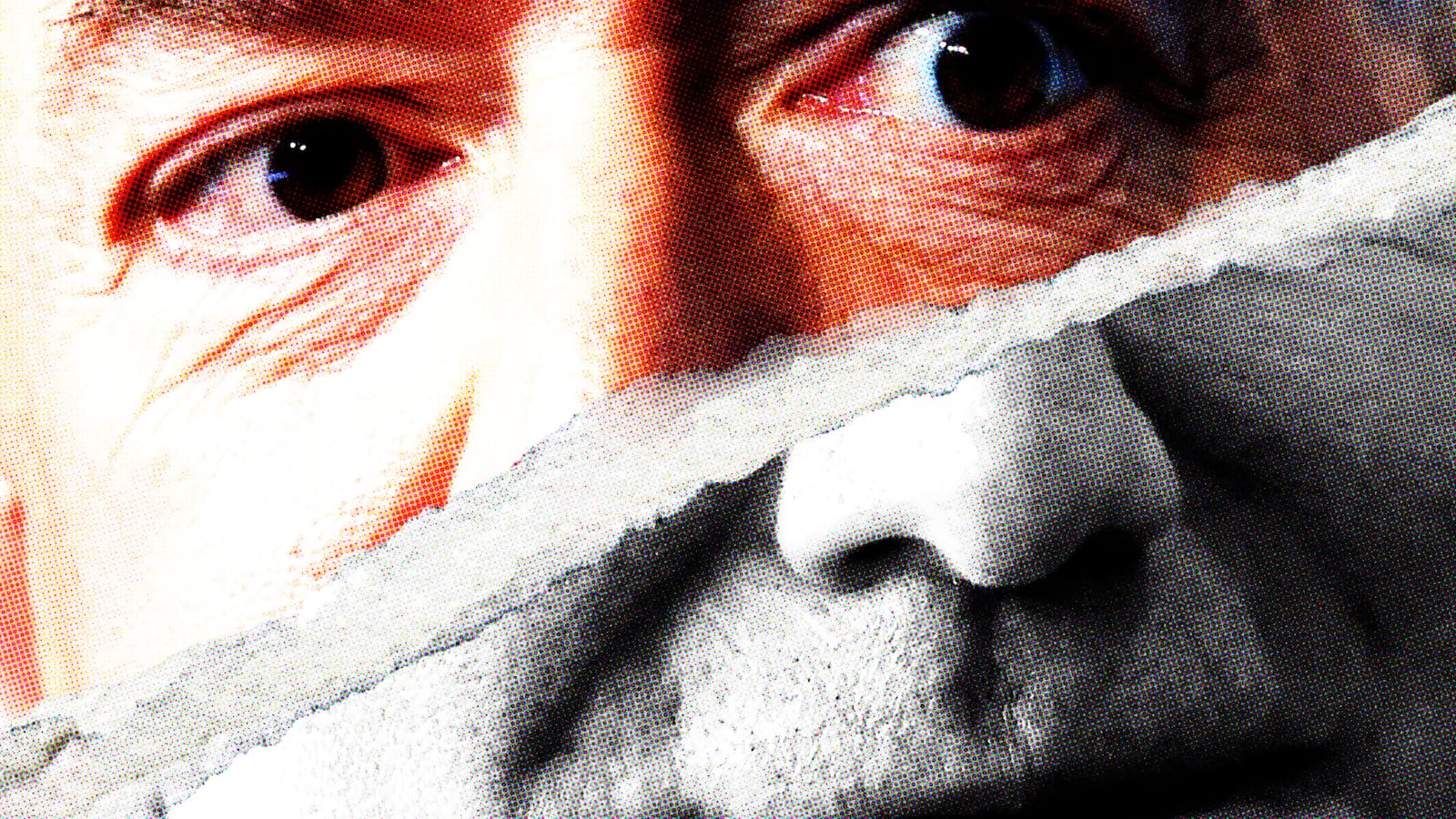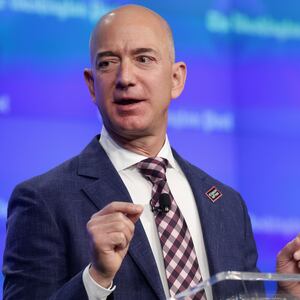By now, it’s abundantly clear that Jeff Bezos’ decision to cancel The Washington Post’s presidential endorsement may have been the greatest self-own in newspaper history. As reported Tuesday by NPR journalist David Folkenflik, 250,000 readers have canceled their subscriptions since Friday, when the Post announced that it wouldn’t offer an opinion about who should be the next president.
In a column published by the Post a few hours after NPR’s report, Bezos seemed only dimly aware of the subscriber exodus, never mentioning it. Instead, he leaned on principle: “What presidential endorsements actually do is create a perception of bias,” he wrote. “A perception of non-independence. Ending them is a principled decision, and it’s the right one.”
A few hundred thousand former subscribers apparently disagreed with him. So, too, did veteran Post contributor Robert Kagan and columnist Michele Norris, who resigned over the weekend, blasting the decision not to endorse on their way out. Three members of the Post’s editorial board, which devises the paper’s unsigned opinions, resigned from the panel, but remained on staff. More resignations could be forthcoming, a prominent Post columnist told me.
Bezos’ column was preceded by an extraordinary open letter signed by 21 Post op-ed writers as of Monday night. Not to endorse, they wrote, “is a terrible mistake. It represents an abandonment of the fundamental editorial convictions of the newspaper that we love….There is no contradiction between the Post’s important role as an independent newspaper and its practice of making political endorsements, both as a matter of guidance to readers and as a statement of core beliefs.”
On this point, Bezos—who has owned the Post since 2013—seemed to disagree: “We must work harder to control what we can control to increase our credibility,” he wrote, implying that dropping the presidential endorsement would achieve that end.
It’s impossible to know when the bleeding at the Post will stop, or the full extent of the damage once it does, but endorsement-gate extended the months-long sense of crisis at the Post.
Questions about Bezos’ judgment have been building all year, mostly as a result of his hiring of Will Lewis as the Post’s publisher and chief executive. Lewis seemed a savvy choice until news organizations, including the Post, began looking into his work in behalf of Rupert Murdoch’s British tabloid newspapers more than a dozen years ago. The reporting raised questions about whether Lewis helped cover up the papers’ illegal phone-hacking activities. Bezos has stood by Lewis.
The sentiment inside the Post’s newsroom, where I worked as a reporter for 35 years, is that Bezos misjudged the endorsement issue and prescribed the wrong medicine as a result.
Few journalists disagree that mistrust of their work is rife, as Bezos wrote. But most likely reject Bezos’ central thesis—that a presidential endorsement creates more bias.
Editorials, unlike news reports, are supposed to be biased. Readers look to them for a well-informed opinion, a tightly reasoned argument, and a fresh and illuminating perspective. That a reader disagrees with the newspaper’s take is a reason to celebrate; it means the newspaper has stimulated discourse and contributed something to the marketplace of ideas.
Bezos’ claim that endorsements don’t move the needle voter-wise merits examination. An endorsement is not really about anything as direct. It’s a statement of judgment by an authoritative news organization about a candidate’s fitness to govern—and a moral encapsulation of that candidate using the combined forces of the publication’s journalism and powers of evaluation. It’s an expression of representation and judgment. For a newspaper like WaPo to render itself voiceless (as a tribune, or significant representative of the public and public discourse) is arguably its most significant dereliction in not making an endorsement.
In this instance, Bezos, a man who became obscenely wealthy by intuiting what people want, misunderstands his customers. Subscribers pay for the Post because they want to know what it knows and what it thinks about the things it knows. On some basic level, they trust it, or why else would they pay for it?
The wave of subscription cancellations suggests readers are less concerned about bias—which Post reader would be surprised if the Post endorsed Kamala Harris?—than about integrity. They’re disappointed that Bezos chose a weak and cowardly course at a critical moment, the equivalent of leaving the field as the clock ticks down and the ball is at the goal line.
The widely suggested notion that Bezos pulled the Post’s endorsement out of fear or anticipatory obeisance to Trump seems like a stretch to me. The Post’s endorsement of Harris would likely have made no more difference to Trump than the newspaper’s endorsements of Hillary Clinton in 2016 and Joe Biden in 2020. Trump has many reasons to despise the Post—thanks to its Pulitzer Prize-winning news coverage of him and its editorial criticism of him—that a Harris endorsement would have been a non-issue.
What’s more, credit where it’s due: Bezos remained steadfast even when Trump tried to use the power of the presidency to threaten his business interests. In 2019, Trump stepped in when the Department of Defense appeared to be on the verge of awarding a multibillion-dollar cloud-computing contract to Amazon, the company Bezos founded. He also engaged in a long-running attack on Amazon for allegedly not paying its fair share of taxes and supposedly receiving favorable rates for deliveries from the Postal Service.
The Post covered these stories (and others involving Amazon), but Bezos never sought to influence the direction of this reporting or the Post’s editorials about it. The newsroom surely would have rebelled if he had tried.
Which is why endorsement-gate has fostered so much disappointment and anger among my former colleagues. The loss of subscribers is a gut punch; we worked hard to attract those readers. Each one was a public validation of our integrity, enterprise and creativity. It will likely take years to rebuild what has been lost.
In his published remarks, Bezos said he wanted to foster more trust in journalism. After this episode, the Post’s journalists are wondering if they can still trust Jeff Bezos.
Paul Farhi was a reporter for the Washington Post for 35 years. He covered business, a presidential campaign, and the news media. He left at the end of 2023 and has been a freelance writer, contributing to The Atlantic, the Athletic, Nieman Reports and The Daily Beast.






